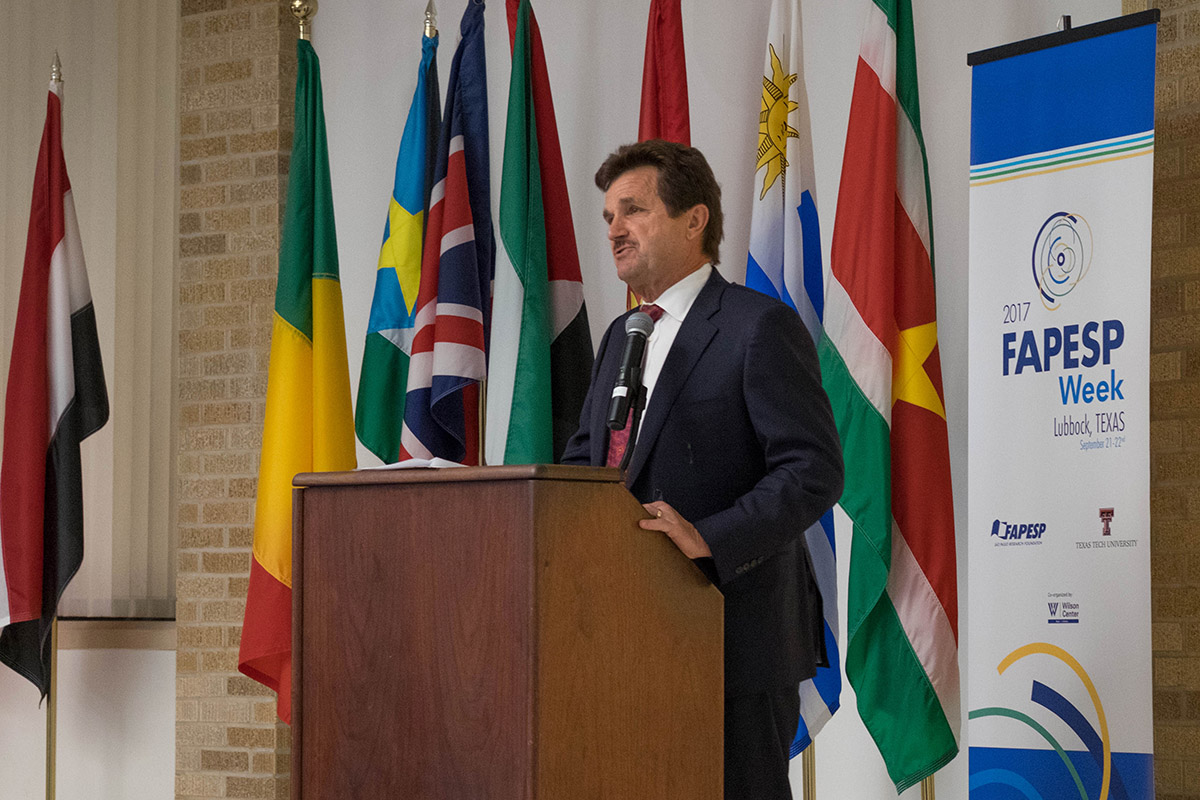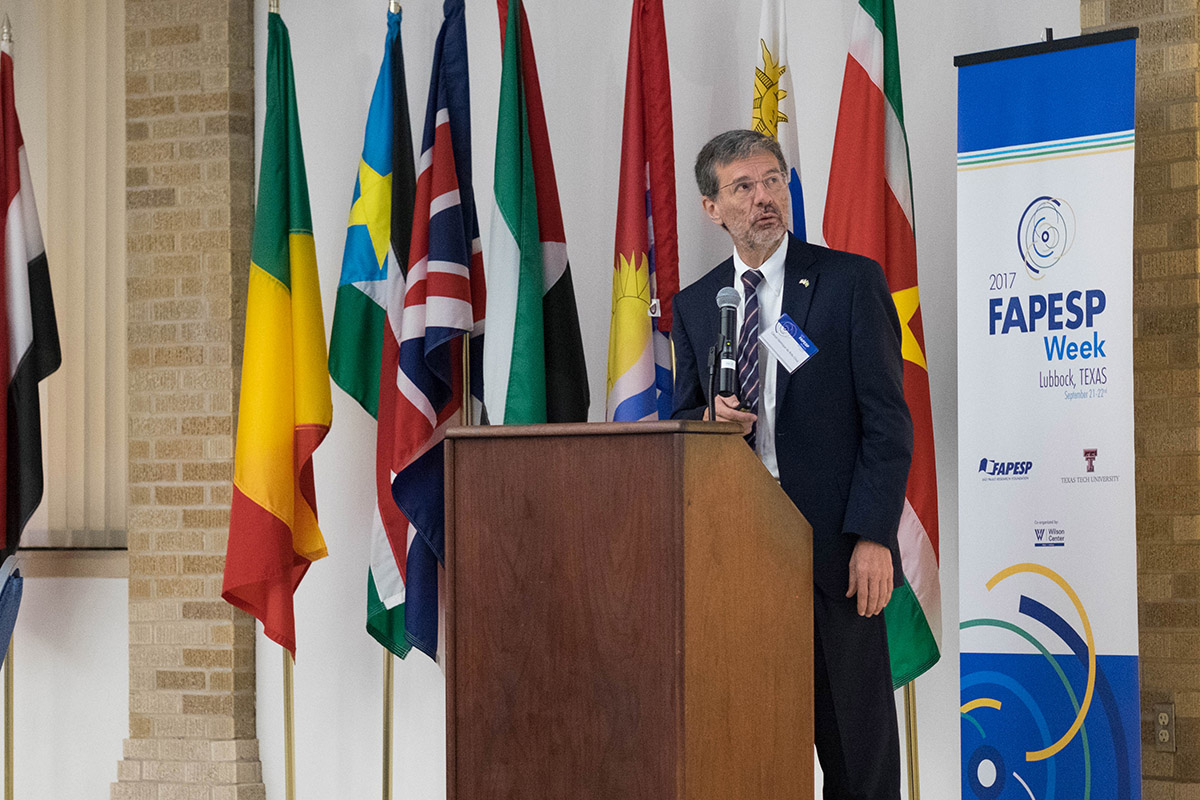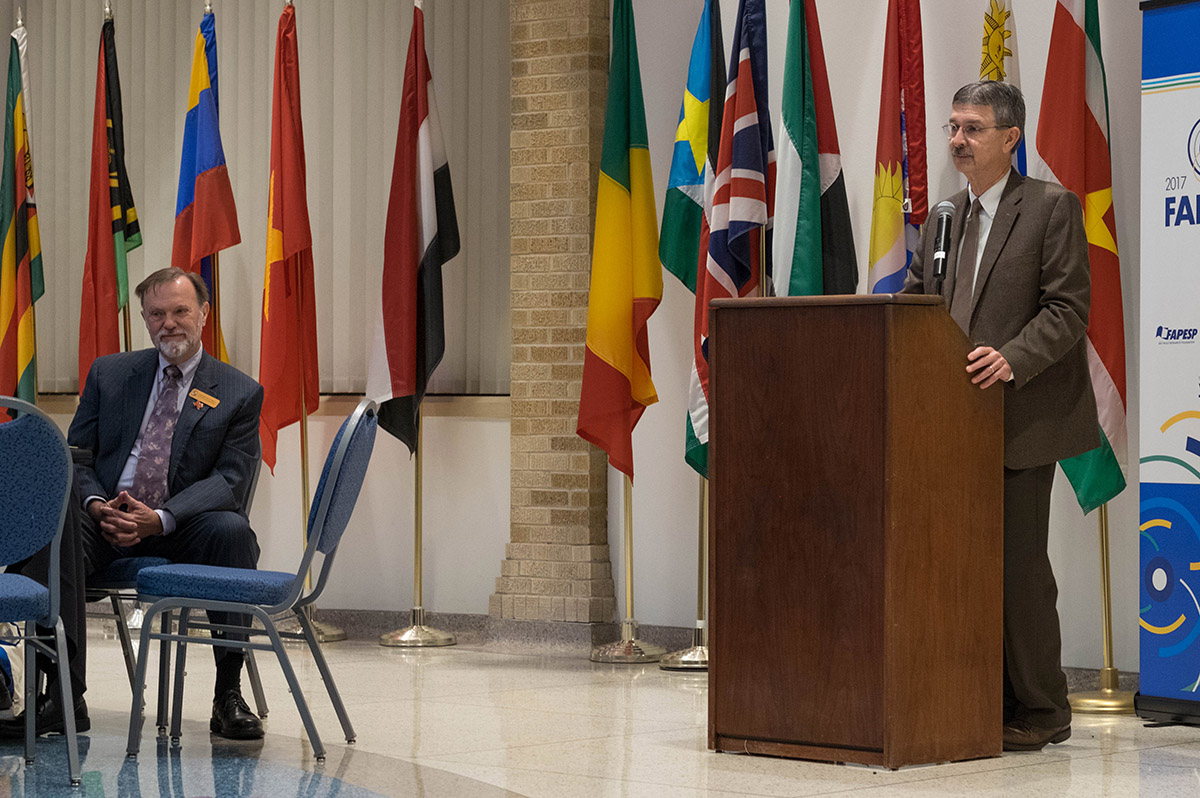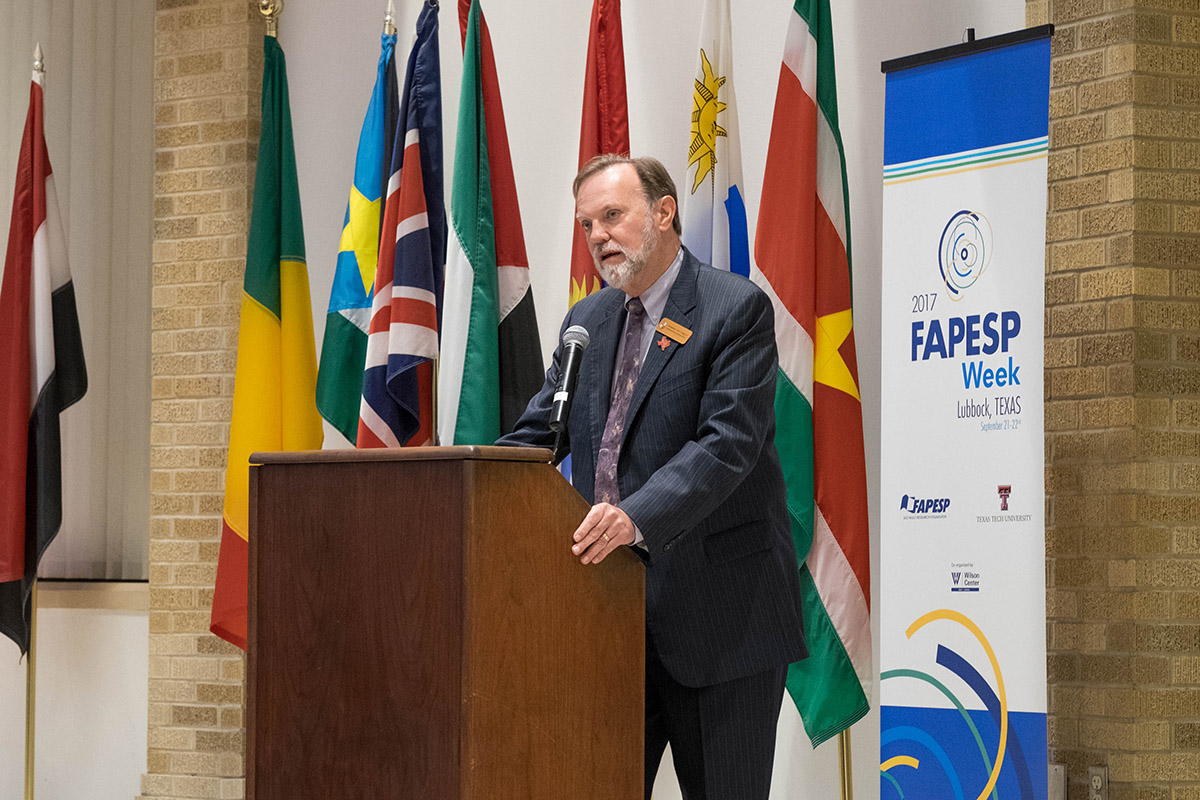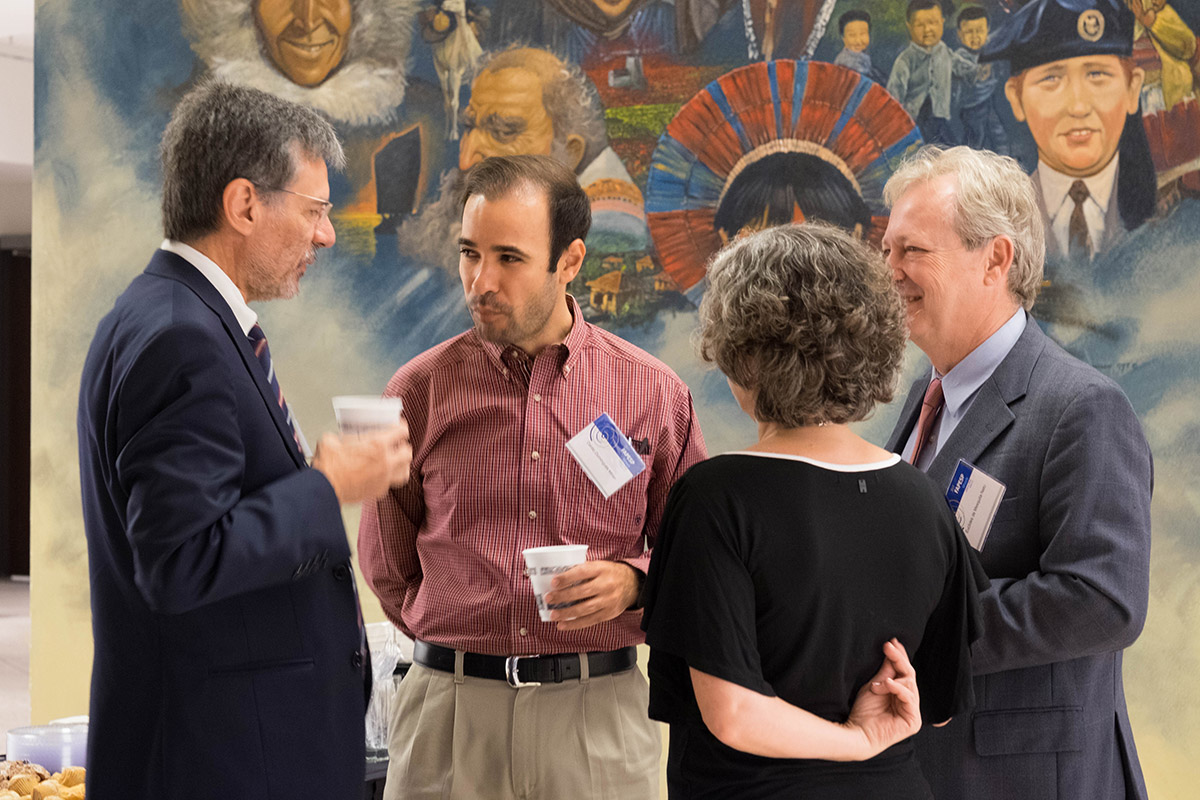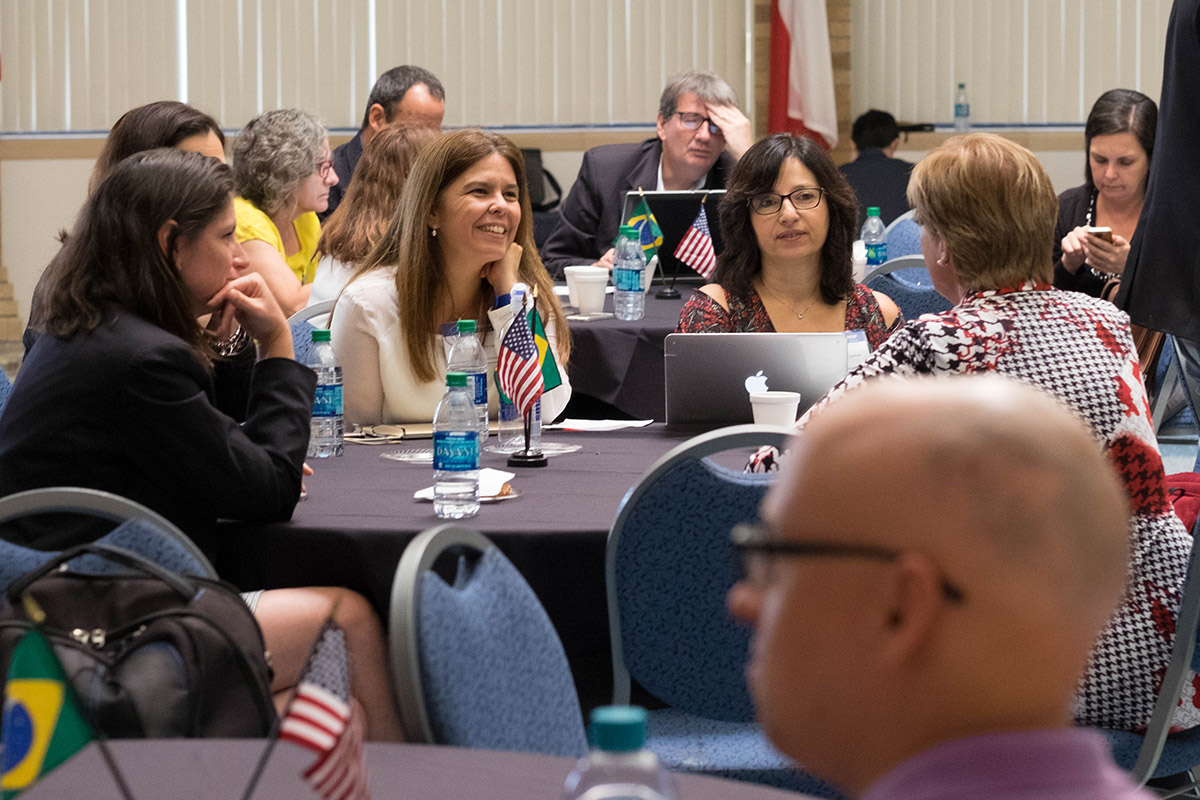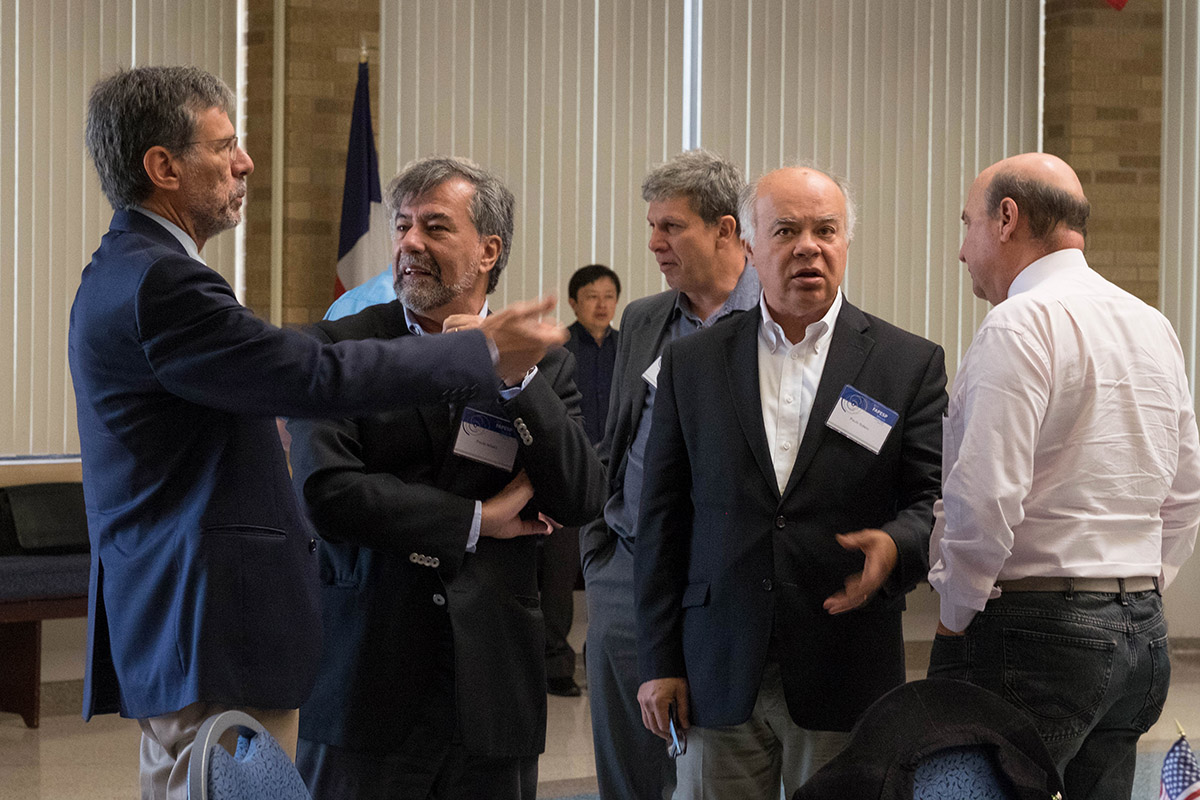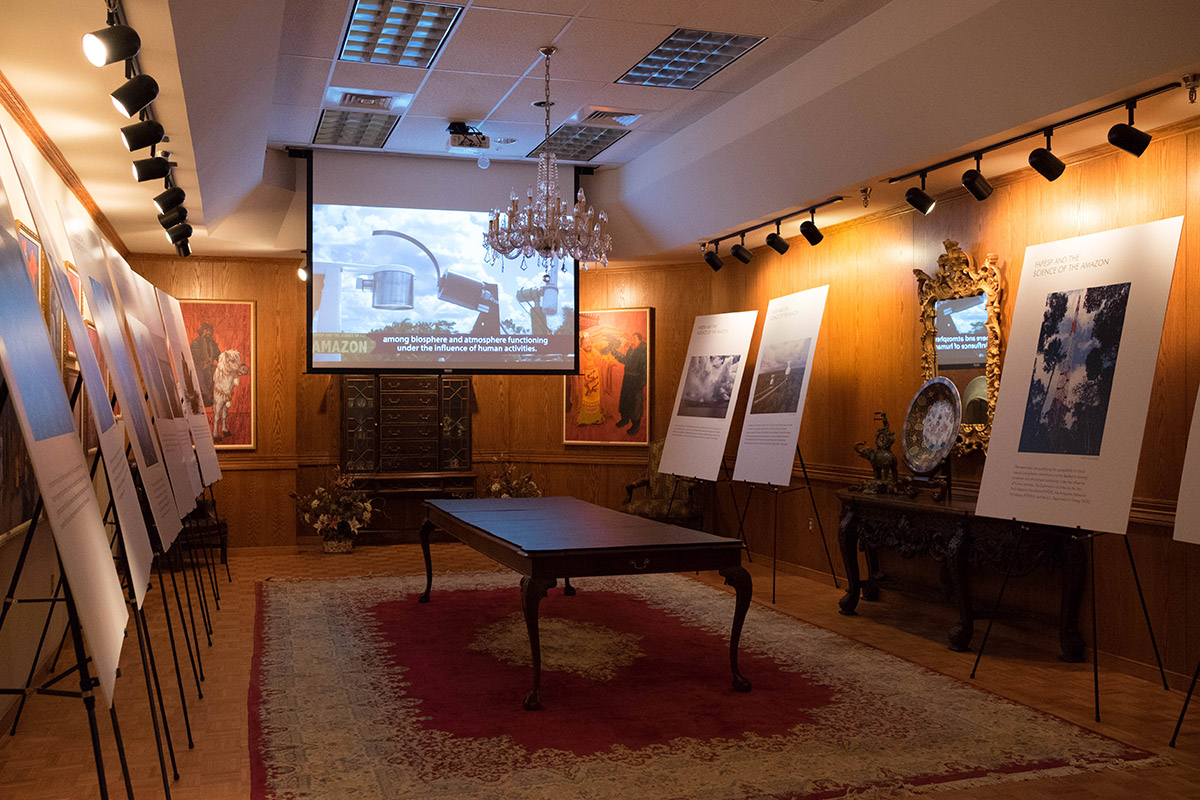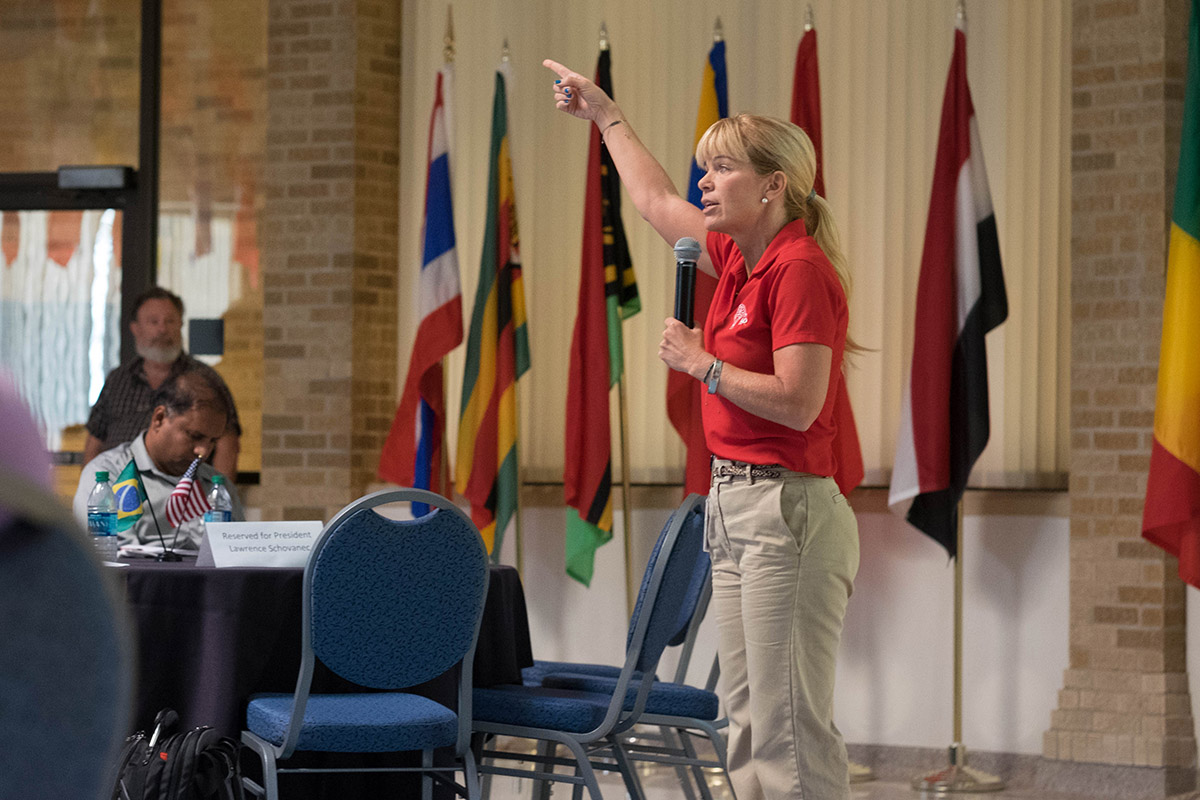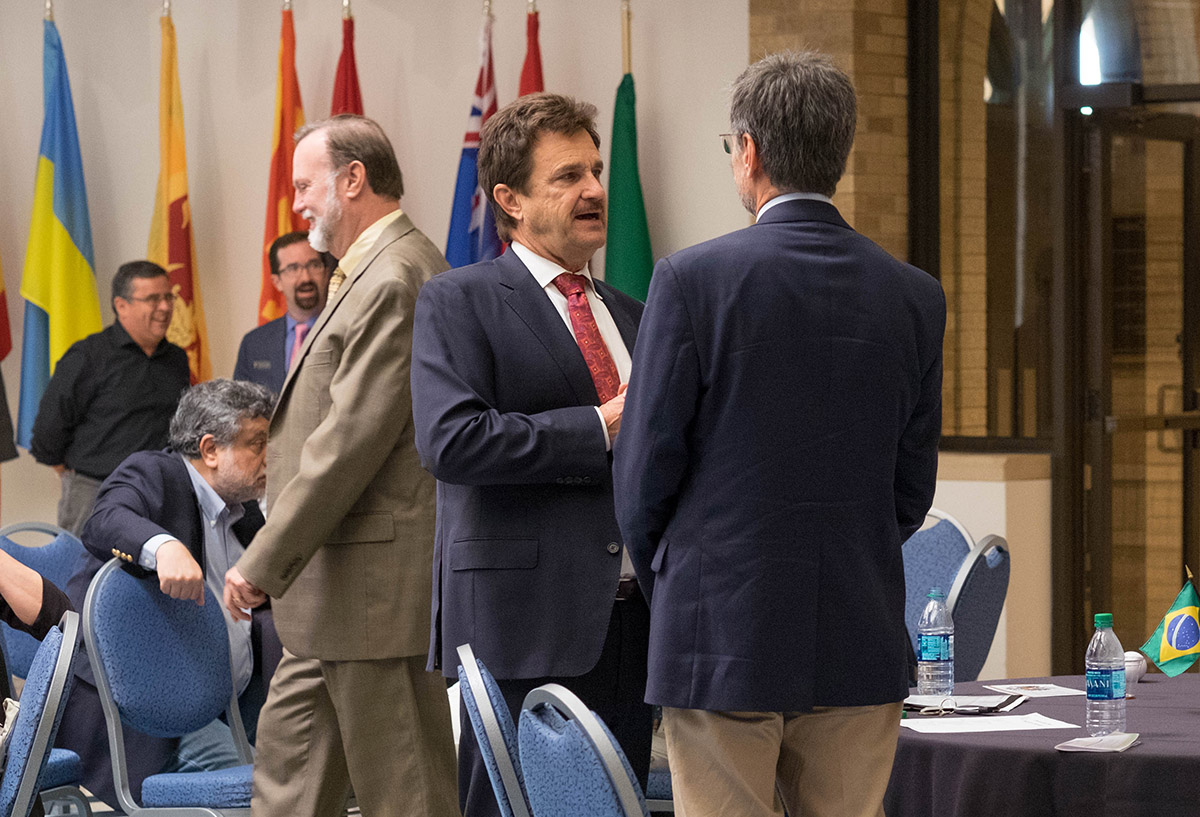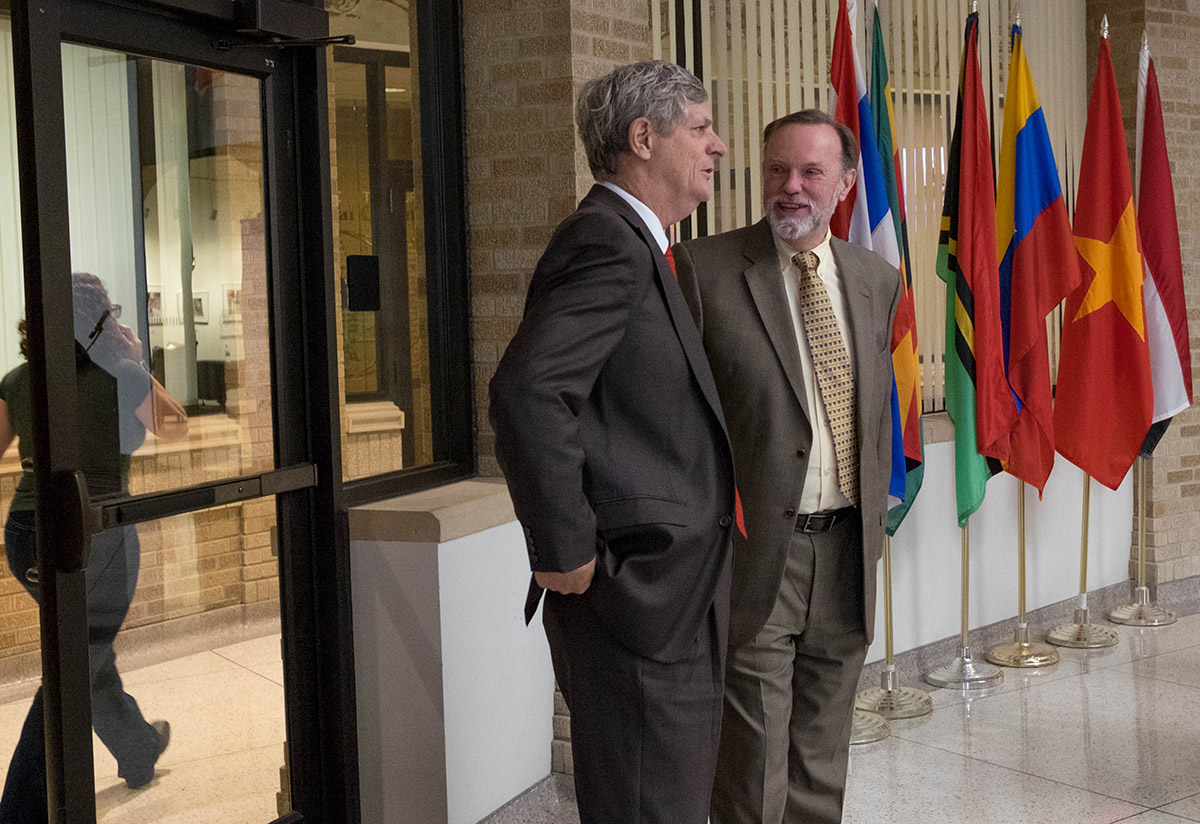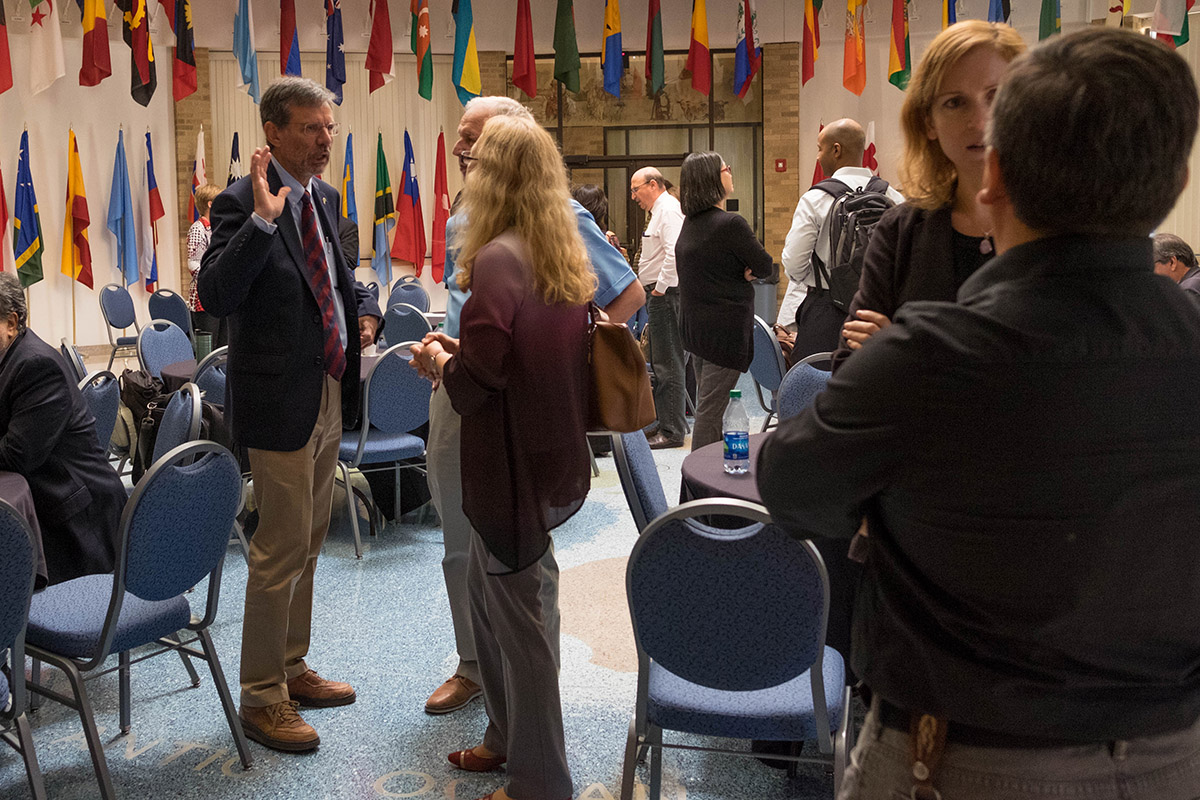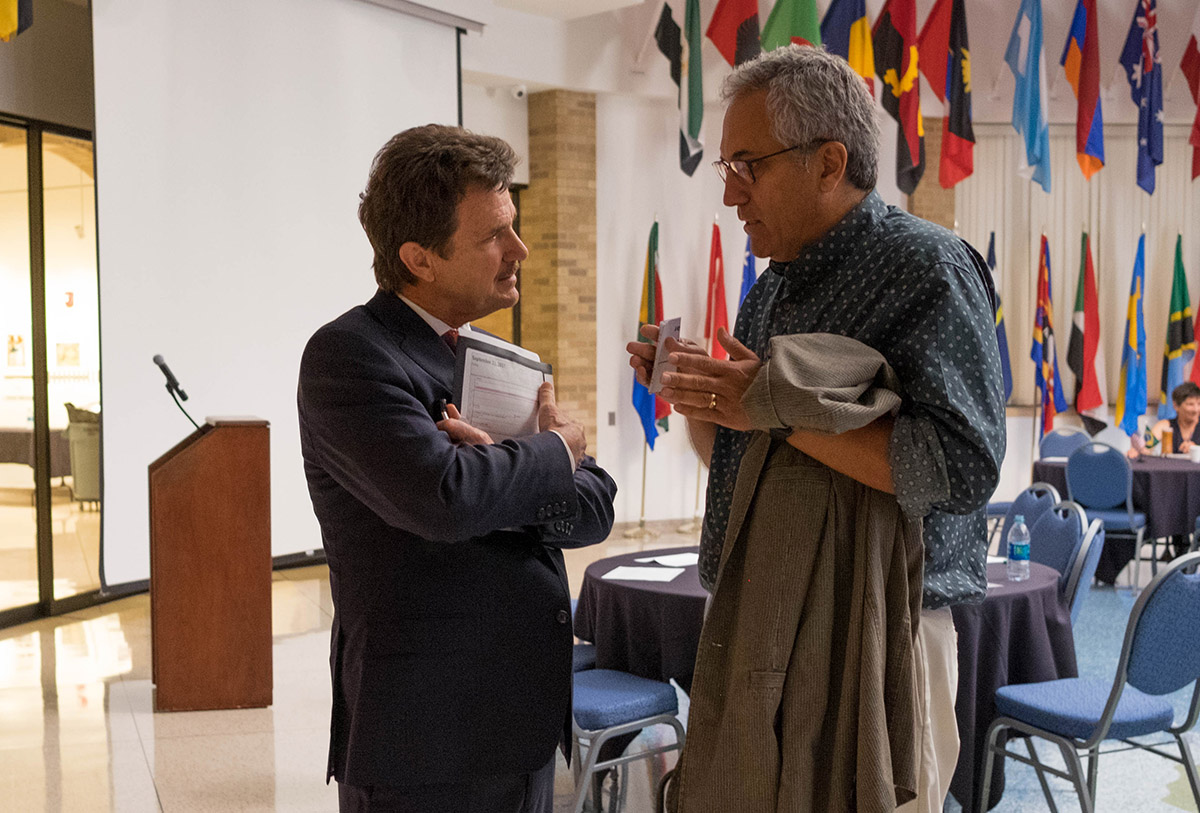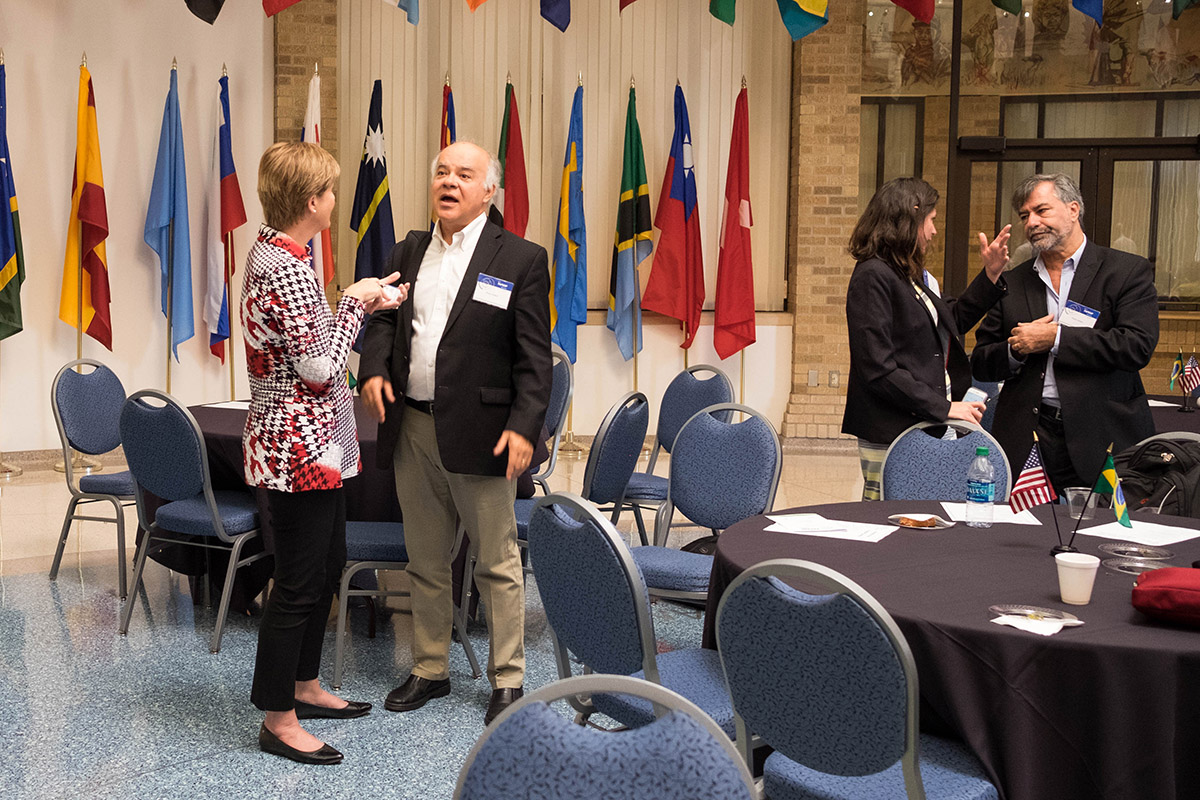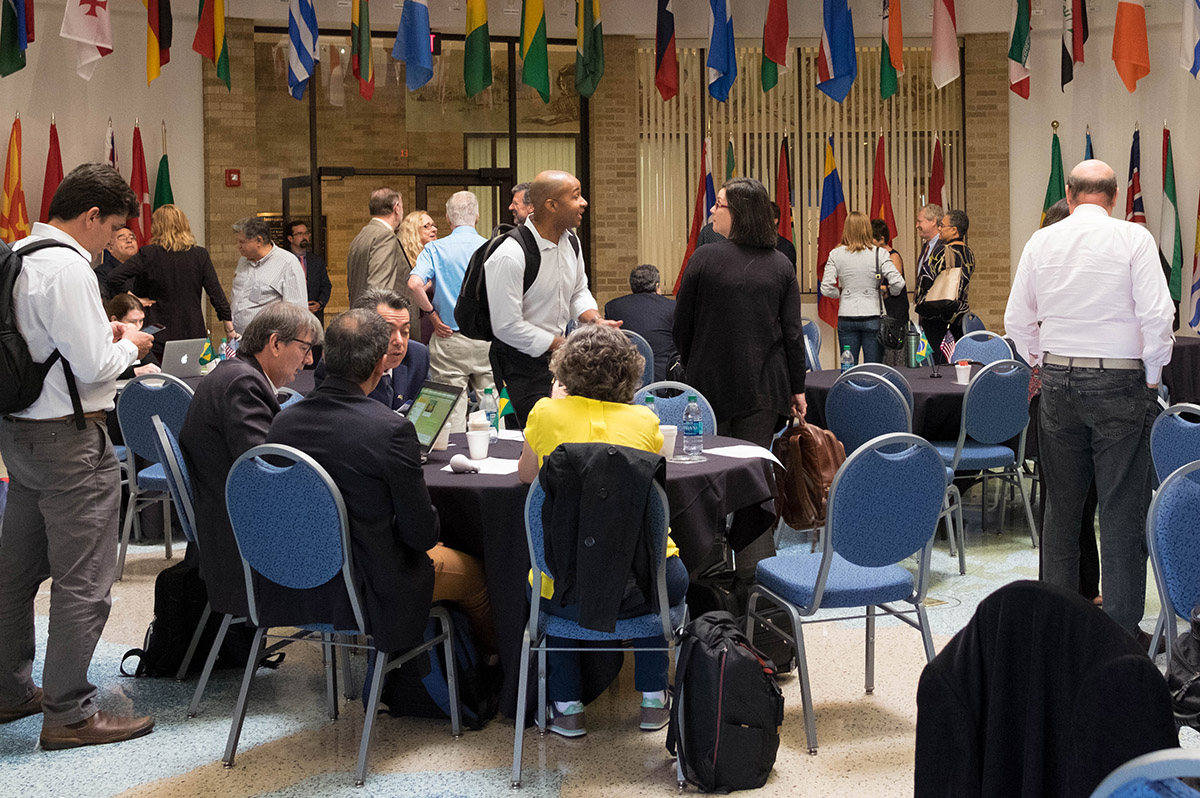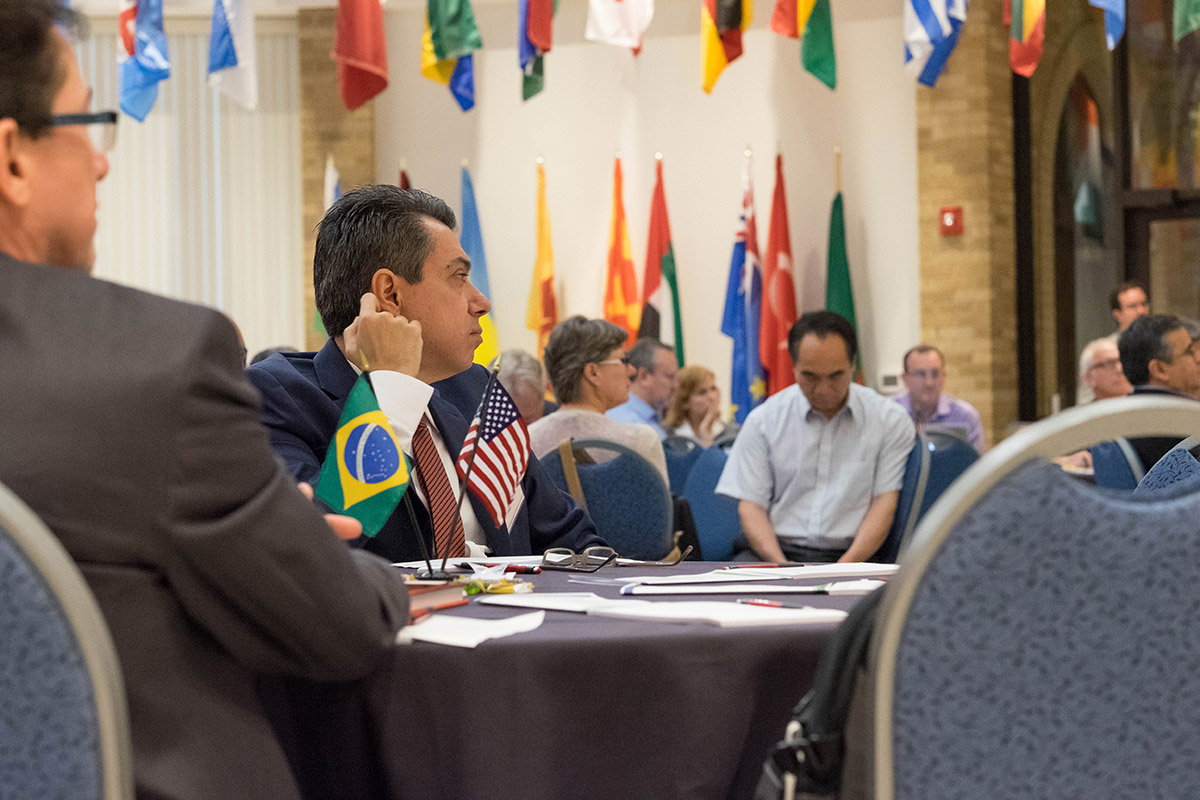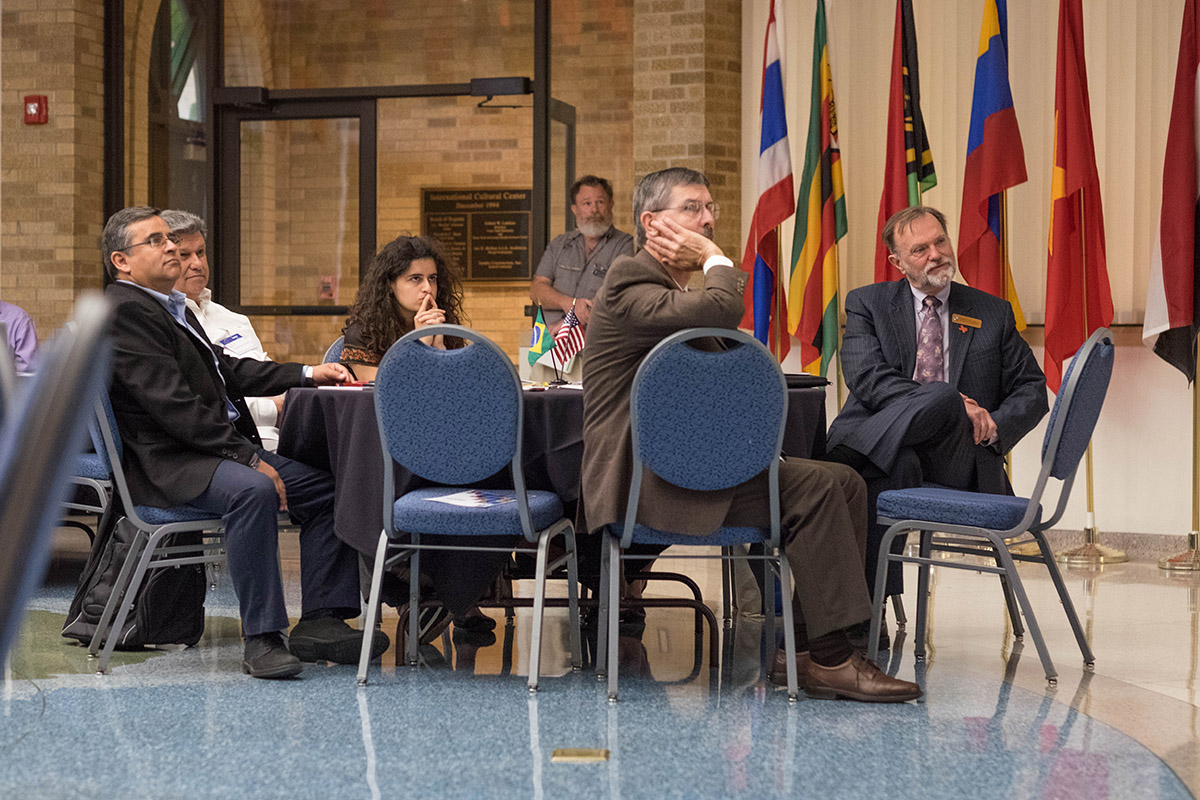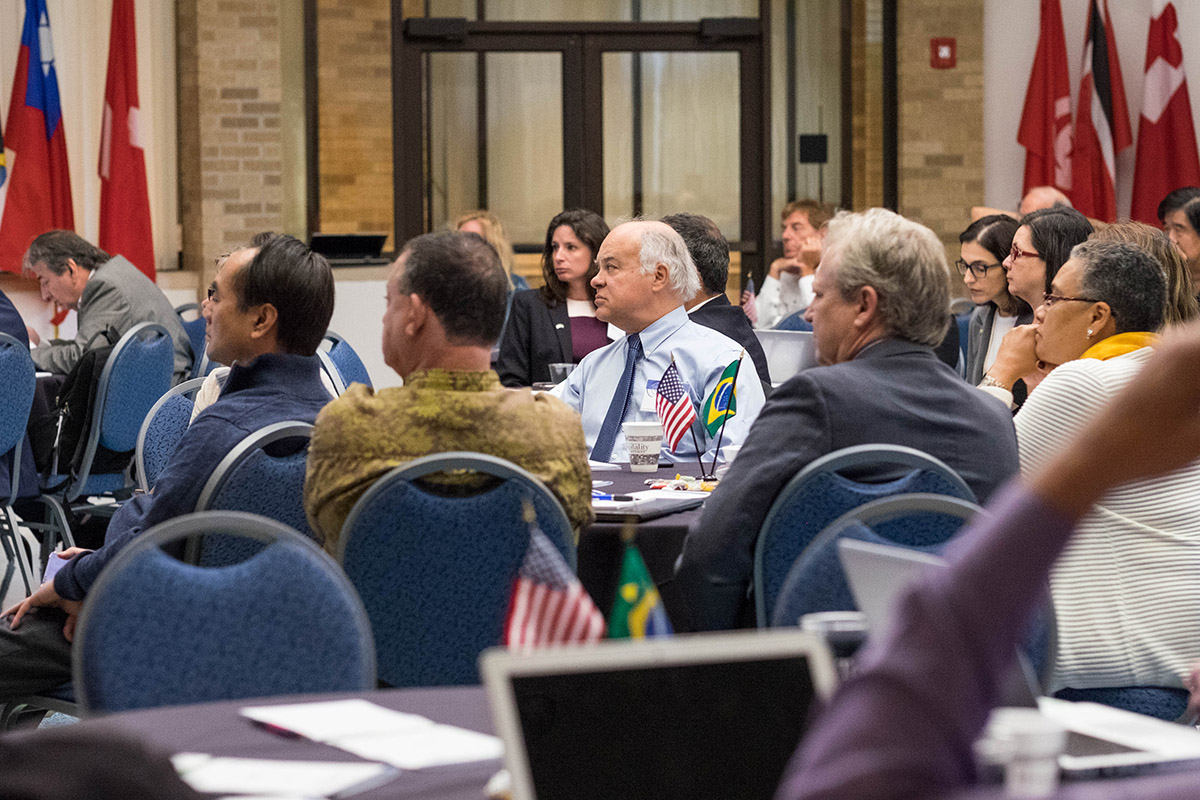Meeting enhances collaborations between Texas Tech and Brazilian institutions
September 25, 2017
“Let our thinking be in world-wide terms,” said Paul Whitfield Horn, the first President of Texas Tech University. That ideal underlies the ongoing push to internationalize all aspects of the university, embodied by the recent establishment of the Center for Global Communication as part of the University's Quality Enhancement Plan and by the ongoing activities of the Office of International Affairs.
International collaboration on scholarship is a cornerstone of that strategy. Brazil, and especially the state of São Paulo and the São Paulo Research Foundation (FAPESP) are an important component. For the past three years, Texas Tech and FAPESP have collaborated on an innovative program to provide joint funding for binational teams studying a broad range of topics. Five projects were funded after rigorous screening in each of the two initial cycles, with two more supported in 2016. Winners of past cycles, as well as possible participants in future funding rounds, spent two days together to discuss progress, challenges, and opportunities for work in Chemistry, Environment and Sustainability, Genomics, Human Health, Physics, Sustainable Energy, and more. In addition to the talks, pictures and a video helped illustrate the activities of FAPESP. Completed projects have resulted in publication of peer-reviewed papers and a book, dozens of presentations in eight countries, and additional financial support from several sources.
The meeting was jointly organized by Texas Tech University and FAPEST, with support from the Woodrow Wilson International Center for Scholars in Washington, DC. On behalf of Texas Tech, the conference was opened by Ambassador Tibor Nagy and Provost Michael Galyean. Over the course of two days, researchers from across our campus and several Brazilian universities presented their ongoing work on topics such as smart grids, water resource management under a changing climate, drug delivery, and obesity and diabetes. Economic factors, including innovation and collaboration with industry group, were an important component discussed by both Dr. Carlos Brito Cruz, Science Director of FAPESP, and Ms. Kimberley Gramm, Managing Director of the TTU Innovation Hub. In his closing remarks, President Lawrence Schovanec emphasized the importance of international collaboration. “Research universities that aspire to address global and grand challenges in research and education,” he said, “should focus on international collaborations.” Two talks offering priorities, funding ideas, and summaries of past funding activities are archives on the web page of the International Research and development Division.
Both Texas Tech University and FAPESP emphasize research that directly addresses societal needs and seek to engage private industry in mutually-beneficial collaborations that enhance job creation and regional wellbeing. This has long been one of the roles of universities, which have repeatedly been shown to not only educate the public and innovate across the academic spectrum but also serve as engines for regional economic growth. The meeting helped emphasize the importance of international collaborations in such work, enhanced the scholarship conducted at Texas Tech, and raised the University's global profile through coverage in the local, national, and international press.
International Affairs
-
Address
601 Indiana Avenue, Lubbock, TX 79409-5004 -
Phone
806.742.3667 -
Email
oia.reception@ttu.edu

